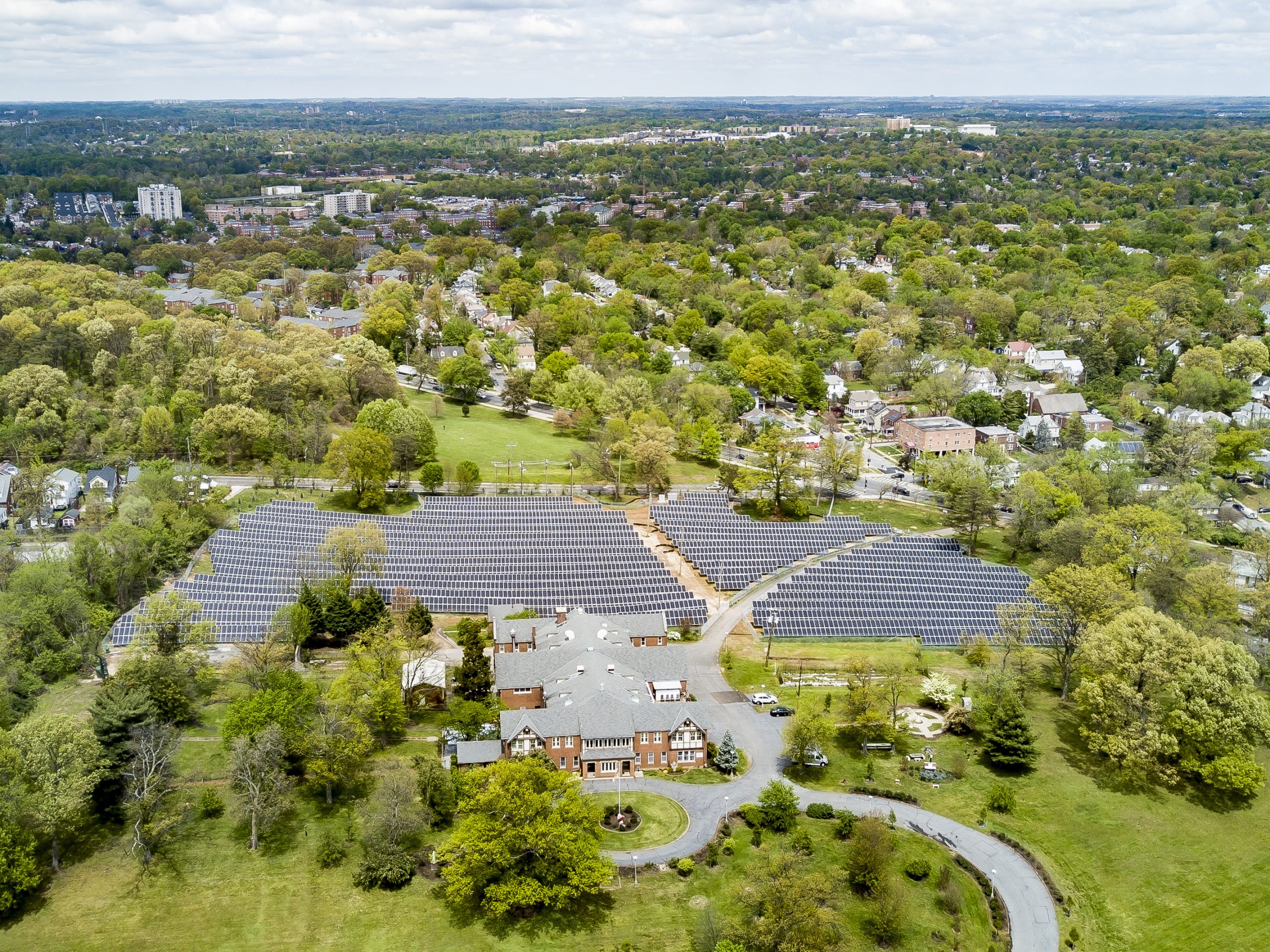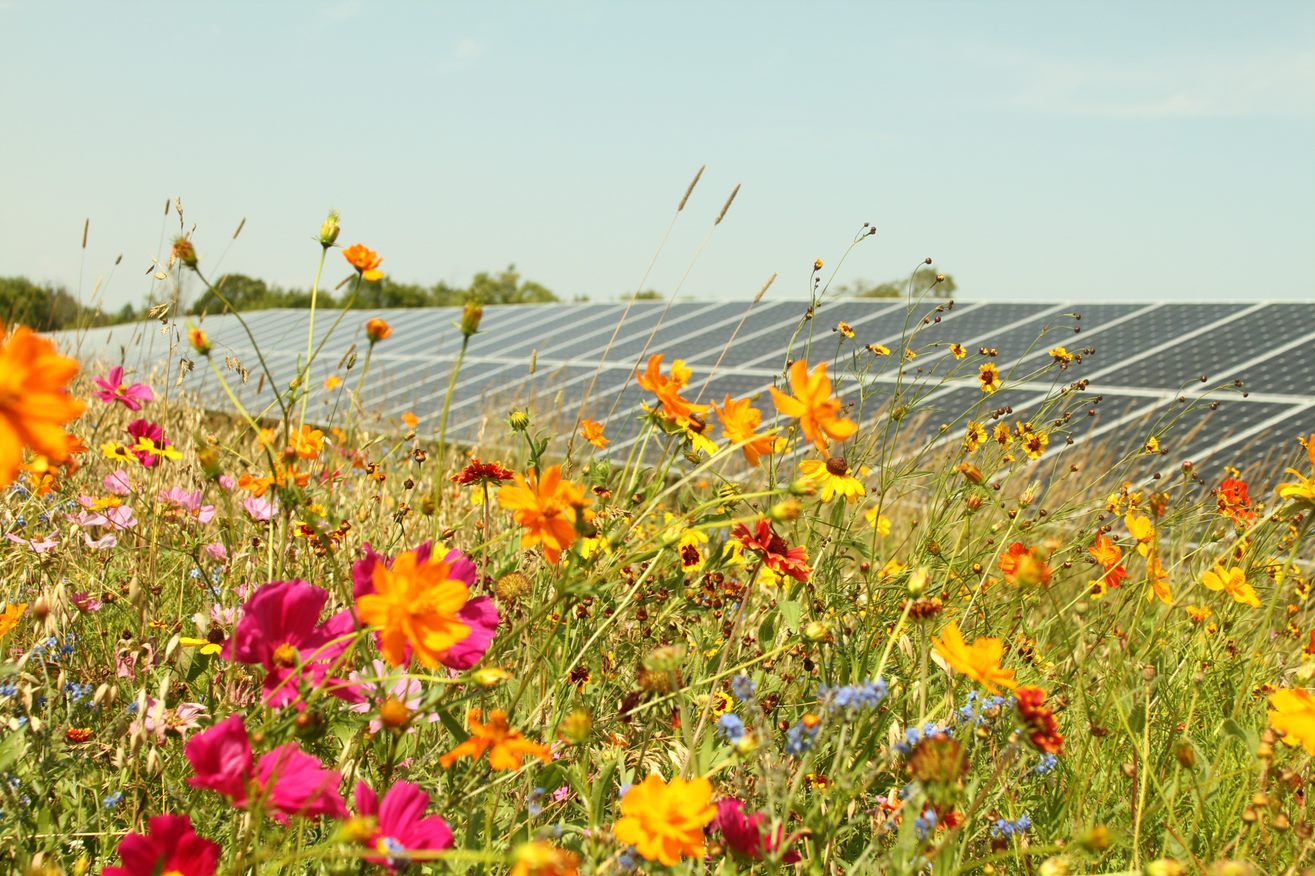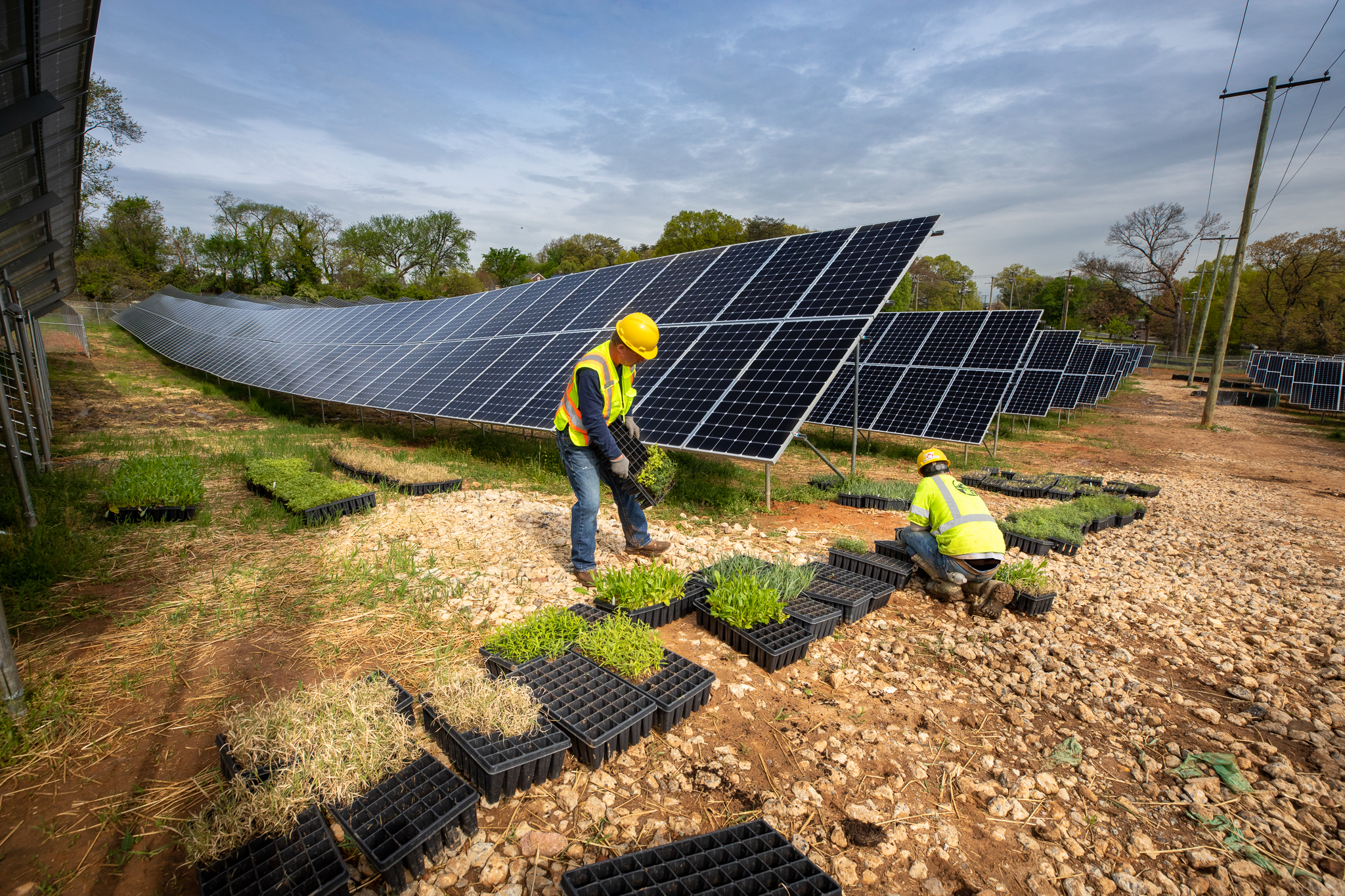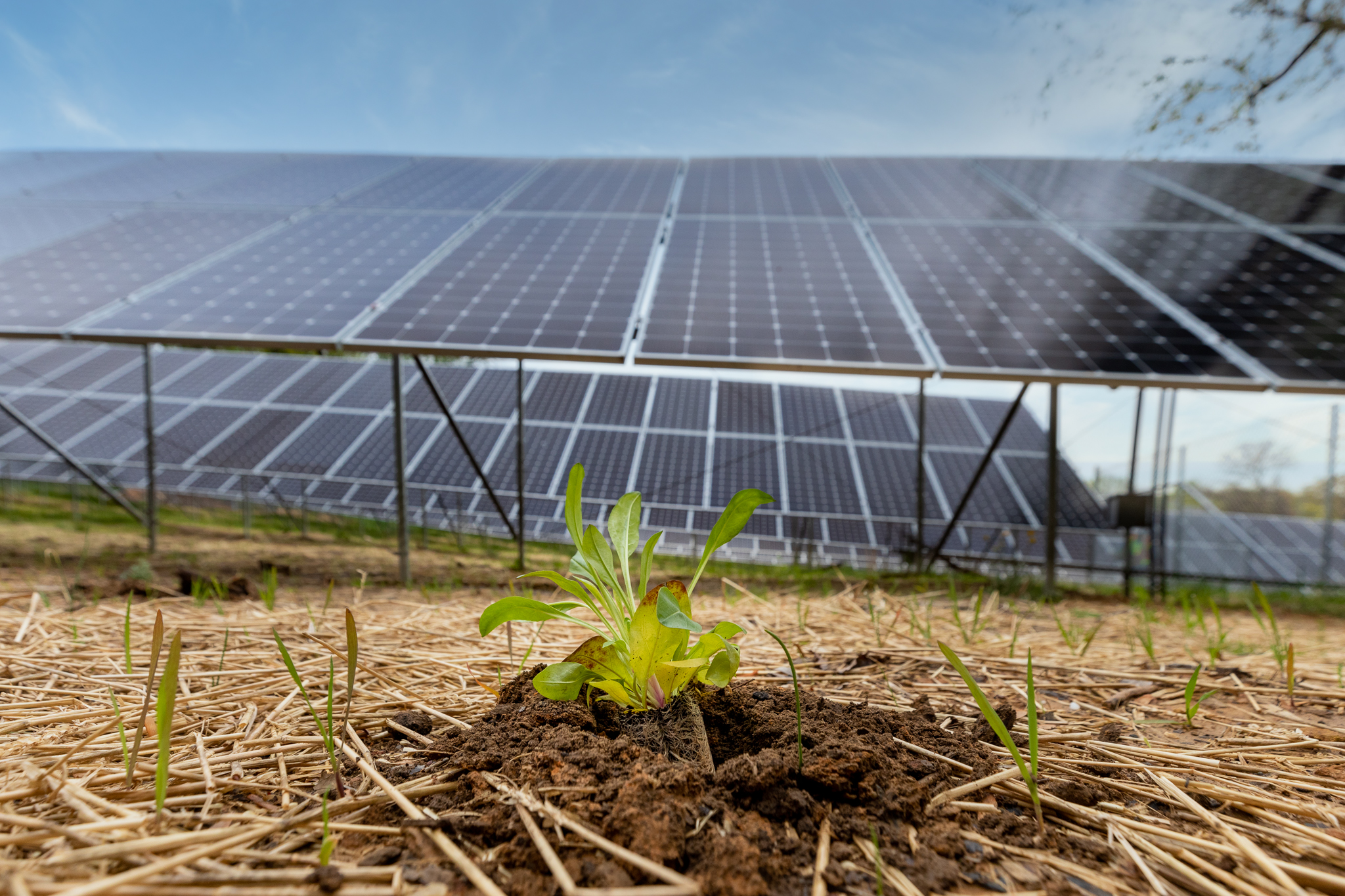
Since it started generating energy just a few short months ago, Catholic Charities DC’s solar array has already made a significant environmental impact on the area. Since January, the project has offset 1,223,781 pounds of CO2 — the equivalent to planting 9,246 trees.

Credit: The Center for Pollinators in Energy
Now that the system is fully operational, we are excited to focus on the site’s next phase: installing the pollinator field.
In late April, crews installed 6,500 landscape plugs as well as pollinator-friendly seed mixes beneath the 5,000 solar panels that sit on five acres at our Gift of Piece property in Northeast D.C.
The array site offered the opportunity to transform unused land covered in gravel into a beautiful and beneficial space that will feature more than 650,000 flowering plants when it fully develops in an estimated three years.

More importantly, it will become a flourishing habitat for bees, butterflies, and other pollinating species, which play an integral role in food and agricultural ecosystems. The U.S. Department of Agriculture reports that “more than 90 species of U.S. specialty crops require pollination… Wild and managed bees together add $15 billion in crop value each year.” The field will help increase pollinator populations, which have declined significantly in recent years with some species even facing extinction. The loss of these species would have a devastating effect on farming and food production. And because the field will not use pesticides and requires minimal care (an annual mowing), it will provide the best conditions possible for growing and protecting pollinators.
A team of ecologists and engineers worked to develop a vegetation management plan to choose a seed mix of 21 pollinator-friendly plant varieties that would work best for the site. These plants include Black-eyed Susans, Milkweed, and Wild Indigo. In fact, most of the plants chosen for site are native to the Mid-Atlantic region and will attract and support local pollinators.

Beyond offering a welcoming environment for pollinators, the field’s plants were selected because of their deep root systems that can grow up to five feet, which will help to control runoff storm water from the solar panels above. The field will also improve the quality of the soil over time. The plants will start to show visible growth by next spring, after spending their first year establishing strong root systems.
By installing this pollinator field on the solar array site, we will be able to maximize the environmental benefits of this piece of land that would otherwise go unused. By implementing these sustainable practices, we continue to focus on our role in caring for our common home.
For more another example of Catholic Charities DC’s efforts to promote sustainability, visit:
Five Years of Laudato Si: Examining Our Role in Protecting the Environment